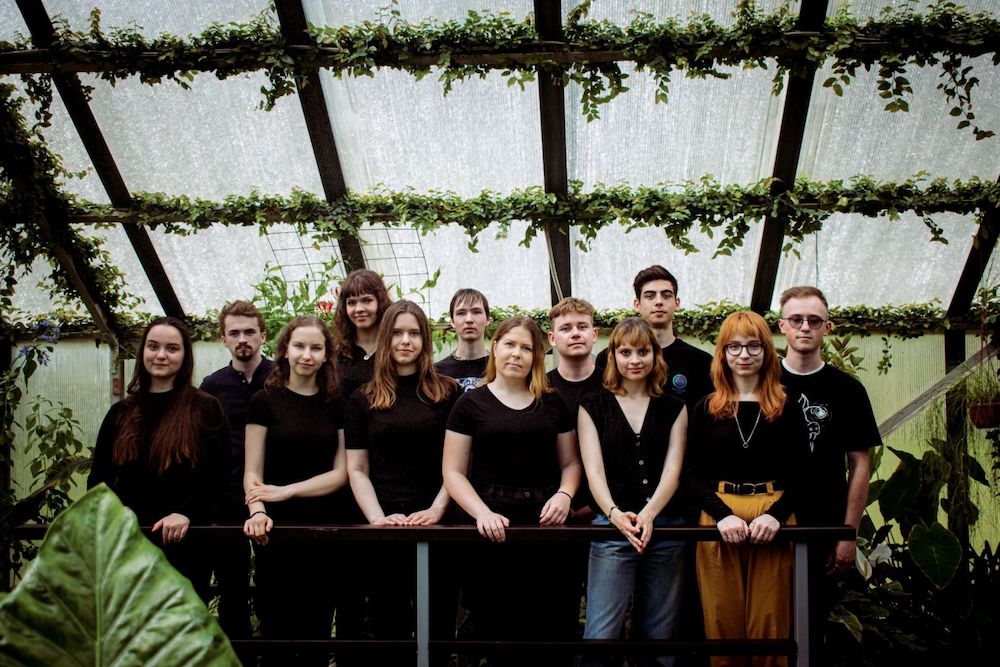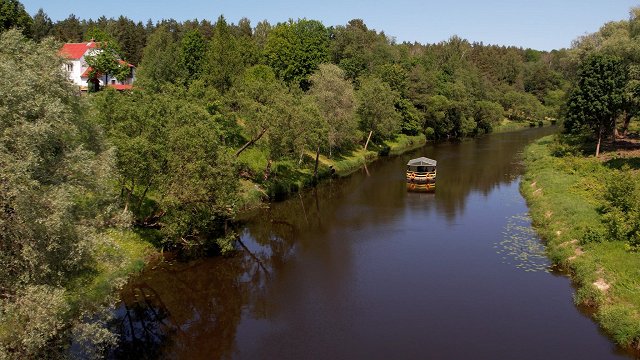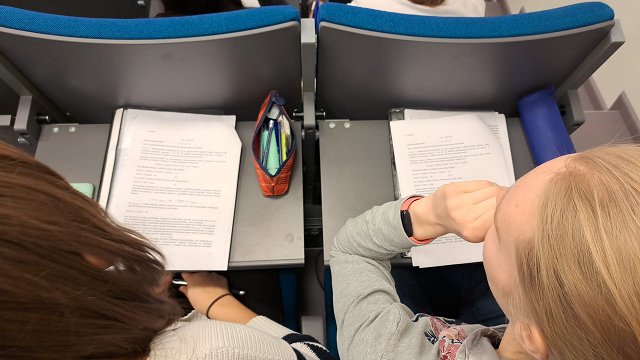The Riga Technical University (RTU) and University of Latvia (UL) iGEM Latvia-Riga team is developing a plant-inspired tool for the production of cyclic peptides, thus finding solutions to antibiotic resistance and contributing to the development of new medicines.
The team’s project Full Circle aims to develop a tool for the synthesis of cyclic peptides. Cyclic peptides have many valuable properties for the development of improved drugs and pesticides, as well as for combating antimicrobial resistance.
Cyclic peptides occur naturally in many plant species, and the molecular mechanism responsible for the cyclisation reactions is the BURP-domain protein. By demonstrating that the BURP-domain protein can cyclicise different peptide sequences, the team hopes to provide a fundamental basis for further development of cyclic peptide products.
At the competition, the team confirmed the peptide cyclisation reaction, providing a proof-of-concept and a basis for further research. The team is also developing an educational game, Biotopia, which is planned to be included in Skola 2030’s Biology I group of teaching materials on synthetic biology topics for secondary schools.
Bronze last year
Last year was the first year when a Latvian student team competed in the event, and it won a bronze medal. The team aimed to use yeast to synthesise crocin, a chemical found in saffron that has useful medical properties.
Currently, crocin is extracted from the plant Crocus sativus, or saffron, which can cost up to €10,000 per kilogram. For this reason, the team sought to obtain crocin using the cheap and widely available yeast R. toruloides, which naturally contains chemical compounds similar to crocin.
“During my first iGEM project, I gained the skills to work independently in the lab and developed my understanding of why the competition and synthetic biology are needed to solve various global problems. This year, I am applying this knowledge to improve the performance of the 2023 Latvian iGEM team,” says last year’s team member Jānis Edmunds Daugavietis.
This year’s Latvian team has twice as many talented members as last year. The team is preparing for the competition under the guidance of mentors Jānis Liepiņš and Anna Stikāne, researchers at the Institute of Microbiology and Biotechnology at the University of Latvia. They will carry out their research work in collaboration with the Latvian Institute of Organic Synthesis and the laboratories of the University of Latvia. The team’s goal is to further develop the biotechnology sector in Latvia and the Baltics.
Solving problems through synthetic biology
For 20 years, iGEM has provided a platform for students to push the boundaries of scientific discovery and explore the possibilities of genetic engineering.
iGEM aims to foster problem solving from a synthetic biology perspective, with interdisciplinary teams working together both inside and outside the lab to design and further develop solutions to pressing environmental, medical or industrial problems using the latest molecular biology techniques.
The iGEM Latvia-Riga team is supported by MikroTik, airBaltic, the University of Latvia Foundation, the Student Council of the University of Latvia, the RTU Student Parliament and the Biocatalyst Foundation.
Read more such stories at the dedicated Labs of Latvia portal.




























